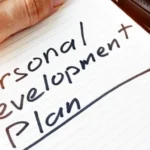Self-confidence is the foundation of success and personal fulfillment. It influences how we perceive ourselves, how we interact with others, and how we approach challenges.
A confident person trusts their abilities, makes decisions with conviction, and pursues their goals despite setbacks.
However, self-doubt often creeps in, leading to hesitation, fear of failure, and even missed opportunities.
Overcoming self-doubt and building self-confidence is not about eliminating fear altogether but learning to manage and rise above it.
Many people struggle with low self-esteem due to past failures, negative experiences, or societal pressure.
They hesitate to take action because they fear rejection or criticism. However, confidence is a skill that can be developed through intentional practice and mindset shifts.
In this comprehensive guide, we will explore actionable strategies to build self-confidence, challenge limiting beliefs, and foster a resilient mindset that enables you to thrive.
Whether you are aiming to improve your career, relationships, or personal growth, these steps will empower you to overcome doubt and embrace your full potential.
Understanding Self-Confidence and Self-Doubt
What is Self-Confidence?
Self-confidence is the belief in one’s abilities, qualities, and judgment. It is about trusting yourself to handle life’s challenges, make sound decisions, and achieve your goals.
A confident individual exudes positivity, takes initiative, and persists despite obstacles.
Confidence is not arrogance; rather, it stems from self-awareness, preparation, and experience.
The stronger your self-confidence, the more resilient and adaptable you become in facing life’s uncertainties.
The Psychological Impact of Confidence
Confidence affects various aspects of our lives, including mental health, career advancement, and personal relationships.
Studies show that individuals with high self-confidence tend to experience lower levels of stress and anxiety.
They are more likely to take risks, handle criticism constructively, and maintain a positive outlook on life.
By strengthening confidence, one can significantly enhance overall well-being and resilience.
Additionally, self-confidence is directly linked to increased motivation and productivity.
When you believe in your ability to accomplish tasks, you are more likely to set ambitious goals and follow through with determination.
This results in continuous personal and professional growth, as confidence acts as a driving force to push beyond perceived limitations.
What Causes Self-Doubt?
Self-doubt arises when individuals question their abilities and fear failure.
It is often fueled by past experiences, negative self-talk, or external influences such as criticism from others.
Factors that contribute to self-doubt include:
- Past Failures: Negative experiences can create a fear of repeating mistakes, making individuals hesitant to try again.
- Comparison with Others: Social media and societal expectations can make people feel inadequate, leading to diminished self-worth.
- Perfectionism: Unrealistic standards lead to feelings of never being “good enough,” creating a cycle of self-criticism.
- Lack of Experience: Fear of the unknown can create hesitation and insecurity, preventing personal and professional growth.
- Negative Environment: Unsupportive friends, family, or colleagues can undermine self-belief, reinforcing limiting beliefs.
- Unrealistic Expectations: Expecting instant success can lead to frustration and self-doubt, as progress often takes time and effort.
- Fear of Judgment: Worrying about others’ opinions can limit self-expression and confidence, discouraging people from stepping outside their comfort zones.
Overcoming self-doubt requires self-awareness, resilience, and the ability to reframe negative thoughts into constructive ones.
By addressing the root causes of self-doubt, individuals can gradually build a healthier self-perception and cultivate lasting confidence.
How to Build Self-Confidence

Develop a Growth Mindset
A growth mindset is the belief that intelligence, talents, and abilities can be developed through effort and perseverance.
People with a growth mindset see challenges as learning opportunities rather than obstacles.
- Embrace Challenges: Face difficulties head-on instead of avoiding them, viewing obstacles as opportunities for growth.
- Learn from Criticism: Constructive feedback helps you improve and refine your skills rather than diminish your worth.
- Reframe Failures: Instead of seeing failures as defeats, view them as stepping stones toward success and personal development.
- Adopt Positive Affirmations: Replace self-doubt with empowering statements like, “I am capable, resourceful, and resilient.”
By continuously adopting a growth mindset, you can cultivate confidence through learning, self-improvement, and perseverance.
Challenge Negative Thoughts
Negative thoughts are a major roadblock to confidence. Identifying and challenging these thoughts helps build a healthier self-image.
- Recognize Negative Self-Talk: Pay attention to inner dialogues that say, “I’m not good enough.”
- Question Your Doubts: Ask yourself, “Is this thought rational? What evidence supports it?”
- Replace with Positivity: Counteract negativity with affirmations such as, “I have handled difficult situations before, and I can do it again.”
- Journaling: Writing down your thoughts can help you identify negative patterns and replace them with positive ones.
- Surround Yourself with Encouragement: Seek positive influences who uplift and motivate you.
Set Small, Achievable Goals
Setting realistic goals and achieving them step by step creates a sense of accomplishment, reinforcing confidence.
- Break Down Large Goals: Instead of overwhelming yourself with a big target, divide it into manageable steps.
- Track Progress: Document your achievements, no matter how small, to reinforce self-belief.
- Celebrate Success: Recognizing progress boosts motivation and self-esteem, reinforcing the belief in your capabilities.
- Visualize Success: Imagining yourself achieving your goals can increase self-belief and motivation, making challenges feel less daunting.
Step Out of Your Comfort Zone
Staying in a comfort zone limits growth. Taking calculated risks and exposing yourself to new experiences builds resilience and confidence.
- Try New Things: Engage in activities that challenge you, such as public speaking or learning a new skill.
- Embrace Discomfort: Growth comes from pushing boundaries and overcoming fears.
- Learn from Mistakes: Each setback is a stepping stone to improvement, helping to refine your skills and knowledge.
- Engage in Social Activities: Interacting with new people can enhance communication skills and confidence, allowing for new perspectives and growth.
Focus on Your Strengths
Identifying and leveraging your strengths helps boost confidence and fosters a positive self-image.
- Make a Strengths List: Write down your skills, achievements, and qualities that make you unique.
- Utilize Your Talents: Engage in activities that highlight your strengths, reinforcing your confidence in those areas.
- Avoid Fixating on Weaknesses: Focus on improvement rather than self-criticism, acknowledging that perfection is unattainable.
- Engage in Activities You Enjoy: Passionate involvement in hobbies and interests boosts confidence and provides fulfillment.
ALSO READ: How to Set SMART Goals for Maximum Impact
Conclusion
Building self-confidence and overcoming doubt is a lifelong process that requires patience, commitment, and resilience.
By implementing these strategies, you can develop an unshakable belief in yourself and achieve your goals with confidence.
Each small step toward confidence leads to a stronger self-image and greater overall success.
With practice, perseverance, and self-awareness, you can transform self-doubt into unwavering confidence, unlocking your full potential in all areas of life.







